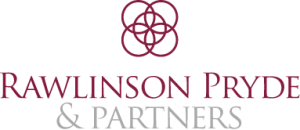There are several tax saving steps, to help mitigate your tax liabilities for the tax year 5th April 2018. However, you should act now before the end of the tax year for many of the suggestions below.
Individuals – Income Tax
- Bring forward income to use up your Personal Allowance £11,500 (17/18).
- Investing into a pension scheme. Paying £80 into a pension scheme credits it with £100 after tax relief. A higher rate taxpayer obtains further tax relief (£20) by the extension of your basic rate band. The tax savings can be larger for those earning over £100,000. You may therefore wish to top up your pension now. Note there is a maximum limit eligible for full relief.
- Using your savings allowance (basic rate taxpayers £1,000, higher rate taxpayers £500, additional rate taxpayers £Nil). Some bank accounts allow you to change the date you receive your interest. A change from 5th April to 6th April can make one month’s interest taxable in the current tax year. Alternatively you may wish to delay the interest to be taxed next year.
- For those who earn £11,500 or less from your employment, you are able to benefit from a further £5k savings band before your £1k savings allowance.
- The dividend allowance is £5k (17/18) but from 6th April it falls to £2k.
- Using your annual ISA limit of £20,000 (17/18). Investing into a Stocks & Share ISA means both your Dividends received and Capital Gains made are exempt from tax. Cash held in a Cash ISA at a lower interest rate than an easy savings account can give you a greater return! A higher rate taxpayer earning 1% from a Cash ISA account is the equivalent to 1.67% in an easy access account. Note assumed you have used your £500 savings allowance already.
- Gather details of employment-related expenses that have not been reimbursed ready to complete a P87 Form after the tax year. This may include professional subscriptions paid personally or not being reimbursed the full 45p per mile.
Individuals – Capital Gains Tax
- Dispose capital assets such as shares or cryptocurrencies to use your Annual Exemption (AE) of £11,300 (17/18). Note if you purchase the same holding within a period of 30 days you will not use your AE.
- Transfer capital assets between a spouse (“no gain, no loss” transfer) and then make a disposal to use up their Annual Exemption of £11,300 (17/18).
- You can delay a Capital Gains Tax liability by 12 months if the disposal is made on or after the 6th April. For example exchanging contracts on a rental property disposal on 6th April means you will pay Capital Gains Tax by 31 January 2020 instead of 31 January 2019.
Tax Saving for Rental Property Owners
Tax saving ideas for property owners:
- Re-mortgage on or before the 5th April to allocate 75% of the finance costs against income instead of 50%.
- Carry out any repair work before the end of 5th April 2018. This gives you tax relief up to almost 10 months earlier.
- Update domestic items such as beds, carpets, crockery or cutlery, sofa, curtains, fridges and other white goods on or before 5th April 2018.
- For the timing of a rental property disposal see last point in the Capital Gains Tax section.
Tax Saving for Unincorporated Businesses
For non-cash basis unincorporated businesses:
- If you are considering making capital purchases, such as computers, equipment, machinery etc. you should consider making these prior to your accounting year end to receive tax relief sooner. If this results in a loss, you can set this off against other income. You may wish to carry it back to the previous year. This is of particular benefit if you are in differing tax bands in each year and cannot use averaging rules. You are also able to carry forward losses against the same trade.
- Make repairs or replace small items before your year end to get tax relief sooner.
- Consider extending your year end to use up overlap profits. If the proportion of your overlap profits are greater than your profits for the same number of months it can lead to a tax saving.
For those using the cash basis:
- If you have had a good year and will be a higher rate taxpayer, but expect to be a basic rate taxpayer next, you should consider bringing forward costs to this tax year. This will mean you will receive tax relief at 42% (with National Insurance) compared to 29%.
There are other tax saving opportunities available and this is a non-exhaustive list. You should always speak to a qualified accountant or tax adviser if you are not sure what you are doing. If you need any advice, please contact us.

